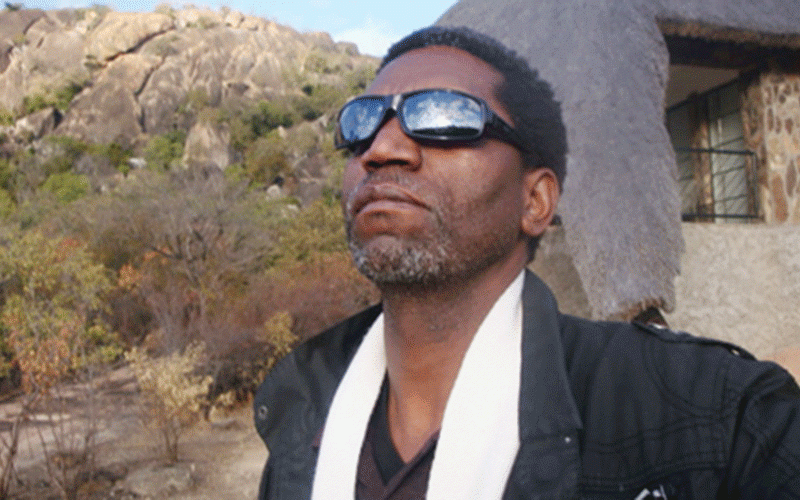
A FEW years before his untimely death, iconic reggae superstar Robert Nester Marley — monikered Bob Marley and the Wailers — penned Redemption Song.
In it, he says, “Emancipate yourself from mental slavery, none but ourselves can free our minds”.
Then and now, this song gave me the impression that there is something sinister that engulfs one’s mind due to extended periods of enslavement, oppression, repression and colonisation.
While we know officially that South African apartheid lasted about 50 years, historians are also clear in their minds that colonisation of Africa reared its ugly head in the 1500s — which I assume can be put in the same class with “modern colonialism” that emerged after Africa’s partitioning at the 1884 Berlin Conference.
Marley was obviously fixated on classical 17-18th century African Western slavery, which he dramatised in Buffalo Soldier.
However, in the late 1970s, his focus drastically shifted to pre-independence colonialism in Africa that technically ended with South Africa’s majority rule in 1994.
However, if one goes further back into human history, there is evidence that primitive mankind thrived on military conquests, and the fruits of prevailing over another nation was enslavement of the vanquished.
Thus, everytime I see a “historical” documentary on Discovery, National Geographic or History channel, the glory of Roman, Greek and Egyptian architecture that now passes as wonders of mankind is dwarfed — at least for me — on one basis.
That those structures could not have been what they are — majestic — without slave labour.
The argument can go on, but that is not my area of expertise, at least for now.
Today, I want to emphasise the importance of maintaining and preserving the dignity and longevity of freedom — once one has it — because it is not easy to regain if carelessly misplaced.
Freedom is as much physical as it is mental. What this means is that we liberals must reconfigure our perception as well, so that when we preach the “gospel” of free markets, constitutionalism, rule of law, small government, property rights etc, we should appeal to one’s intellect without emphasising the material outcomes.
Why I say that is obviously because Marley said so! I have a good reason to believe his narrative.
If you listen to most African apologists — actually, South African and Zimbabwean so-called pan-African apologists — they are quick to attribute failure of democratic governance to “apartheid” or “colonialism”. Don’t lose me now. Work with me!
It is very common to hear South Africa’s African National Congress (ANC) “governance failure apologists” allege that “X of the apartheid era are still intact” — even after almost three decades of independence.
So much that there are electoral promises impossible to fulfil until such structures are dismantled?
A good example is economic freedom. We are constantly reminded that the reason why most black South Africans are poor and homeless is because of white capitalist interests that are not keen to let go of the “levers of South Africa’s economy”.
In Zimbabwe, the late authoritarian dictator Robert Mugabe convinced millions of gullible citizens that if he expropriated land from “racist white commercial farmers”, his “land reform policy” would radically transform the economic fortunes of the majority of black citizens.
It seems the cycle of deceitful falsehoods continues even today with incumbent President Emmerson Mnangagwa.
When he deposed Mugabe in a November 2017 military coup, Mnangagwa told enthusiastic crowds that his era of governance would render “illegal Western sanctions ineffective” because the country would be rebuilt by its own people (in local Shona language, it’s “Nyika inovakwa nevene vayo”.
Mnangagwa is facing another tough election a few months from now, meanwhile he and his apologists are blaming “illegal Western sanctions” for his governance failures.
On every local, regional, continental or global forum, Mnangagwa and his surrogates are at pains to convince those who care to listen how Zimbabwe would have excelled had it not been for “illegal Western sanctions”.
But just like brain damage in adults whose “motor and spatial functions can be recovered if undamaged neurons are stimulated to create new innervation”, damaged perception of liberal freedom can be repaired, however, with a lot of hard work.
Our mandate as African liberals is to defend and guard the environs of democracy so that the current generation does not get sucked into the nationalist mantra of denialist whataboutism.
The present generation must not be cheated into believing that whatever vices associated with failed nationalist governance can be traced to apartheid or British colonialism.
Zimbabwe is facing elections very soon. State propaganda will portray opposition parties as “agents, puppets of and sellouts to Western imperialism”, this is meant to prey on the minds of gullible rural voters.
Zanu PF is cooking one big story of mental slavery so that citizens remain trapped in denialism — denial that liberal multi-party democracy, free and fair elections can work.
South Africa’s Eskom is going to collapse not because of “apartheid legacy and white capitalist interest”; it will collapse because of African National Congress incompetence and corrupt cartels doing the bidding for the elite ruling class.
South Africans and Zimbabweans must be reminded that liberalism works.
It’s no longer an experiment. We can truly free our markets. We can enjoy free association, free assembly, free movement, free competitive media, unrestrained property ownership and equal opportunities.
Let no one poison our minds with selective reference to apartheid and Rhodesian colonialism.
We should emancipate ourselves from mental slavery because none but ourselves can free our minds.
- Rejoice Ngwenya is founder and executive director of the Coalition for Market and Liberal Solutions in Zimbabwe, and a contributing author for the Free Market Foundation. He writes here in his personal capacity.










